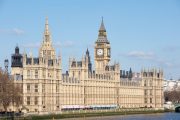Spain has been in a simmering state of crisis since the Great Recession, with the latest episode being the independence bid for Catalonia, a prosperous region in northeastern Spain with its own language and a distinctive culture. Catalonia includes Spain’s second-largest city, Barcelona, as well as a number of other sizable cities, such as Gerona, Tarragona, and Lerida, which are some of Spain’s most economically productive areas. It is a picturesque region of rugged coastlines (the so-called Costa Brava) made famous in the art of Salvador Dali, and has produced many of Spain’s best-known creative minds, including both Dali and Picasso, the writer Josep Pla, the medieval philosopher and theologian Raymond Lully (or Llull), and cellist Pablo Casals. To the north, Catalonia forms part of Spain’s border with France along the Pyrenees Mountains. The language of Catalonia, Catalan, is spoken by as many as nine million speakers, not only across Catalonia but also as the official language of Andorra, a tiny country in the Pyrenees; in south-central France; in the Balearic Islands; in the area of Valencia; and even in a small part of Sardinia. Once upon a time, Catalonia was one of medieval Europe’s power brokers, with the “Catalan Company,” a group of mercenaries led by Roger de Flor, wreaking havoc as far away as Greece in the eastern Mediterranean.
Historically, Catalonia was associated with the kingdom of Aragon, which was united with Spain into one country when Ferdinand II of Aragon was married to Isabella I of Castile in 1474. But despite the passage of more than 500 years, Catalonia has always maintained a separate cultural and linguistic identity.
In the early 20th century, when the leftist upheavals that had been convulsing Europe since the French Revolution finally arrived in conservative Catholic Spain, the Catalan independence movement, allied with radical socialists, united with Spanish Leftists to form the Second Spanish Republic. An autonomous Catalan republic, constituted by a movement known as the Esquerra Republicana de Catalunya (Republican Left of Catalonia or ERC) was formed within the socialist Second Spanish Republic and supported the programs of the Spanish Left, which included not only the disestablishment of the Catholic Church but also systematic persecution and harassment of Catholics. As such, the Leftist Catalan independence movement found itself on the losing side of the Spanish Civil War that ensued with General Francisco Franco and his conservative, anti-Leftist forces representing traditional Catholic Spain.
When Franco and his allies won the war, Catalans became marginalized and persecuted. Franco revoked Catalan autonomy and cracked down on the use of the Catalan language, although it continued to be spoken in rural areas.
After Franco’s death, a new Spanish constitution, which restored Catalonia’s autonomy but denied it the right of outright secession, was promulgated in 1978. Because the new “democratic” government in Spain was also socialist, Catalonia set aside its demands for independence and was content for several decades to govern itself via its own government, the Generalitat. The Catalan language reappeared in street signs, newspapers, television, schools, and halls of parliament.
In 2006, the Statute of Autonomy spelling out the conditions for Catalan autonomy within Spain, which had been approved by referendum in 1979 and included in the Constitution, was modified and again approved by referendum as well as the Spanish parliament. But in 2010, the Spanish Constitutional Court imposed restrictions and modifications on the Statute, leading to widespread demonstrations in Catalonia and the resurgence of pro-independence sympathies. Because of Catalonia’s relative prosperity, it was believed, with more than a little justification, that Spain’s desire to keep the Catalans on a tight leash was driven in part by a desperate need for tax revenues to alleviate Spain’s burgeoning financial crisis.
Since 2010, the independence movement has been driven primarily by the old Catalan Left, including the ERC and the Candidatura d’Unitat Popular (Popular Unity Candidacy, or CUP, whose platform calls for “an assembly-based political organization spread throughout the Catalan Countries that works for a country that’s independent, socialist, environmentally sustainable and free from the domination of the patriarchy.”)
Catalans voted in favor of independence on October 1, and the Generalitat formally declared independence from Spain on October 27, despite a massive police crackdown that tried to prevent Catalans from voting. Thousands of Spanish military police (the Guardia Civil) have been deployed to Catalonia, forcing the leaders of the independence movement to flee to Belgium. Catalans have so far found no support abroad for their independence movement; the EU in particular, anxious to quash any stirrings of self-determination among its captive peoples, has thrown its support behind the government in Madrid.
Although the Catalans undoubtedly have the same right to self-determination as the American Founders, it should be recognized that they are not, in the main, animated by a desire to throw off the shackles of Spanish socialism and embrace liberty and laissez-faire. Rather — as proves so often the case with independence movements — Catalonian independence is more about the right of Catalans to become their own socialist oppressors.
Photo of Catalonian independence supporters celebrating in Barcelona: AP Images




